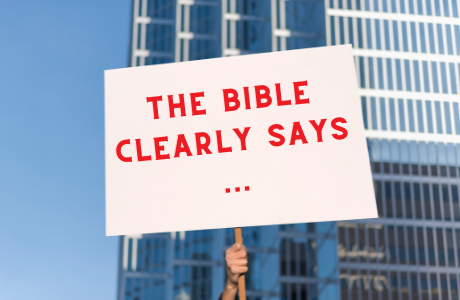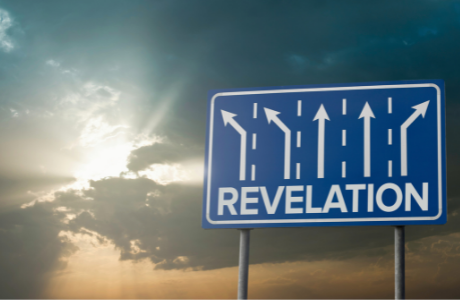Without question, some of Jesus’ sayings are alarming. I was particularly intimidated as a young Christian by the wide gate and broad road leading to destruction.
Jesus said, Enter through the narrow gate. For wide is the gate, and broad is the road that leads to destruction, and many enter through it. But small is the gate and narrow the road that leads to life, and only a few find it.
At the time, the church I attended leant towards legalism and understood many of these sayings through that lens. After all, small is the gate and narrow the road that leads to life, and only a few find it. With the emphasis on only a few find it. Catch that? Just a few. Not many. You may be left out. At least, they were the words that echoed in my young Christian mind.
So, is Jesus trying to scare the hell out of us? Let’s find out.
Hit the Nail on the Head
The Sermon on the Mount serves as context (Matthew 5-7). Jesus explains in chapter seven the critical nature of hearing and acting on his message. Thus, we see numerous examples throughout this chapter that serve as a contrast between two groups:
- Two types of gates ~ wide and small
- Two kinds of roads ~ broad & narrow
- Two sorts of trees ~ Good and bad (fruit)
- Two classes of disciples ~ true and false
- Two kinds of builders ~ wise and foolish
Jesus is expressing the same thing in each of these analogies and uses various images to emphasise his point, similar to repeatedly striking a nail with a hammer until it is deeply embedded in the wood. That is to say:
Entering through the wide gate is the same as
Travelling on the broad road, which is the same as
Bearing bad fruit, which is the same as
Being a false disciple, which is the same as
Being a foolish builder.
The opposite is also true:
Entering through the small gate is the same as
Travelling on the narrow road, which is the same as
Bearing good fruit, which is the same as
Being a true disciple, which is the same as
Being a wise builder.
Two Kinds of People
Jesus ends his sermon with The Parable of the Wise and Foolish Builders, a reference to these two kinds of people who all hear Jesus’ words and teachings:
Group one “hears these words of mine and puts them into practice,” while group two “hears these words of mine and does not put them into practice.”
Group one is “like a wise man who built his house on the rock,” while group two “is like a foolish man who built his house on sand.”
Both groups (houses) experience the same trials and storms in life, “The rain came down, the streams rose, and the winds blew and beat against that house.”
Group one’s house “did not fall, because it had its foundation on the rock.” So is everyone who hears Jesus’ teachings and puts them into practice.
Group two’s house “fell with a great crash.” So is everyone who hears Jesus’ teachings but does not act on them.
The Gospels preserve Jesus’ teachings, while the other New Testament writers expound them further to demonstrate how his teachings apply in daily life. Among the points made by these authors is the following:
You don’t enter the kingdom of heaven by doing good works; you enter the kingdom of heaven by doing God’s will.
That is where the “Many” Jesus refers to have made a grievous error. Their justification for being admitted to the Kingdom of Heaven is based on the excellent actions they have performed. They have prophesied, cast out devils, and performed miracles, but these are manifestations of God’s power at work through a person, not proof of genuine trust in Christ.
Kingdom access is, according to Jesus, for the person “who does the will of My Father in heaven.” What is God’s will? Jesus taught, “my Father’s will is that everyone who looks to the Son and believes in him shall have eternal life, and I will raise him up at the last day.” We enter God’s Kingdom through trust in Jesus! Only through faith in Jesus can we hear and apply his teachings. While good deeds spring from genuine faith, they do not guarantee admission to the kingdom.
Two Stories
As the late Billy Graham put it: “There were a few times when I thought I was dying, and I saw my whole life come before me. I didn’t say to the Lord, ‘I’m a preacher, and I’ve preached to many people.’ I said, ‘Oh Lord, I’m a sinner, and I still need Your forgiveness. I still need the cross.’ And I asked the Lord to give me peace in my heart, and He did – a wonderful peace that hasn’t left me.”
I’ll finish this with a story about a man who died and went to heaven. Of course, St. Peter met him at the pearly gates and explained, “Here’s how it works. You need 100 points to make it into heaven. Let me know all the good things you’ve done, and I’ll give you a certain number of points for each item, depending on how good it was. When you reach 100 points, you’ll get in.”
“Okay,” said the man, “I was married to the same woman for 50 years and never cheated even in my heart.” “That’s wonderful,” said St. Peter, “that’s worth three points!”
“Three points?” he says. “Well, I attended church all my life and supported its ministry with my tithe and service.” “Terrific!” said St. Peter, “that’s certainly worth a point.”
“One point? Gosh. How about this: “I started a soup kitchen in my city and worked in a shelter for homeless veterans.” “Fantastic, that’s good for two more points.” “TWO POINTS!!” the man cried, “At this rate, the only way I get into heaven is by the grace of God!”
“Come on in,” said Peter.













